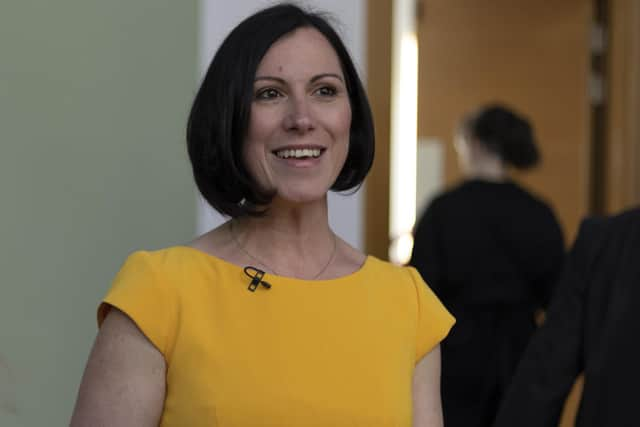You don’t need to call yourself an ‘entrepreneur’ to be a succes - Claudia Cavalluzzo
While Juliet wasn’t fussed about labels, names are sometimes a barrier in Scotland’s innovation ecosystem. And one label splits the audience more than any other – “entrepreneur”.
Some use “entrepreneur” as shorthand for “small business owner”, but there’s an important distinction. Entrepreneurs handle risk differently to other business owners – they spot an opportunity, and they go for it.
Advertisement
Hide AdAdvertisement
Hide AdUltimately, an entrepreneur’s goal is to make money – and that’s where we hit a snag. That’s because, for many of the people who create businesses, turning a profit is just one of their goals.


For them, starting a company is a means to an end. They’re more interested in the impact – they want to make a difference for people or the planet.
It’s a story that we hear again and again at Converge. The staff, students, and recent graduates from Scotland’s universities who want our help to start businesses aren’t simply motivated by money, but also want to use their ideas to improve people’s lives.
For some, that means starting a social enterprise instead of a traditional business. For most, it means creating a company with a purpose that goes beyond the financial bottom line to take into account other factors, such as the best way for its innovation to reach the widest number of people.
We asked our alumni about the words they used to describe themselves and the answers were fascinating. Many labelled themselves as “founder” or “chief executive”, with the American “chief executive officer” or “CEO” also becoming common.
Other popular choices included “innovator”, “inventor”, and “creative”. There are almost as many ways to describe yourself as there are businesses.
This is about more than semantics though. Our research with our alumni found that the label “entrepreneur” has many negative connotations too.
For many women, it can be completely off-putting. They don’t think of themselves as “entrepreneurs”, nor do they describe themselves as “entrepreneurs”.
Advertisement
Hide AdAdvertisement
Hide AdAccording to research by the World Economic Forum, while women entrepreneurship is growing around the world, obstacles remain and men still outnumber women 3-to-1 when it comes to business ownership.
That’s why we’re moderating our use of the label ‘entrepreneur’ for this year’s Converge initiative. Our four challenges – Converge, Create Change, KickStart, and Net Zero – are looking for future “founders”, “innovators” and “creatives” - not necessarily “entrepreneurs”.
We want this year’s Converge cohort to be even more inclusive and diverse. With a strong track record helping more than 600 to launch, we’re already Scotland’s premier company creation programme for Universities and Research Institutes - but now we want to reach an even wider circle of people with great ideas.
Our founders have gone on to create more than 800 high-value jobs and have raised £280 million in follow-on funding. The entrants aiming for this year’s pot of £320,000 in grants and support hope to follow in their footsteps.
Converge is looking to help anyone with innovative ideas and ambition to deliver impact. And you don’t need to call yourself an “entrepreneur” to do that.
Claudia Cavalluzzo, executive director of Converge
Comments
Want to join the conversation? Please or to comment on this article.